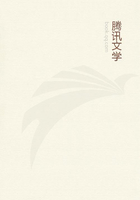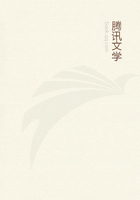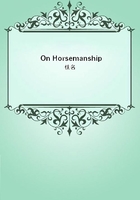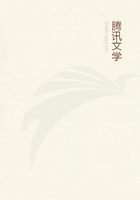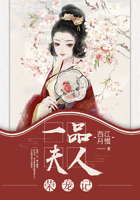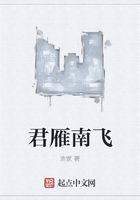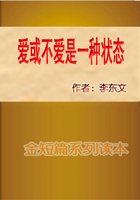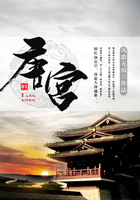With Russell, Somers and Montague, was closely connected, during a quarter of a century a fourth Whig, who in character bore little resemblance to any of them. This was Thomas Wharton, eldest son of Philip Lord Wharton. Thomas Wharton has been repeatedly mentioned in the course of this narrative. But it is now time to describe him more fully. He was in his forty-seventh year, but was still a young man in constitution, in appearance and in manners. Those who hated him most heartily,--and no man was hated more heartily,--admitted that his natural parts were excellent, and that he was equally qualified for debate and for action. The history of his mind deserves notice; for it was the history of many thousands of minds. His rank and abilities made him so conspicuous that in him we are able to trace distinctly the origin and progress of a moral taint which was epidemic among his contemporaries.
He was born in the days of the Covenant, and was the heir of a covenanted house. His father was renowned as a distributor of Calvinistic tracts, and a patron of Calvinistic divines. The boy's first years were past amidst Geneva bands, heads of lank hair, upturned eyes, nasal psalmody, and sermons three hours long. Plays and poems, hunting and dancing, were proscribed by the austere discipline of his saintly family. The fruits of this education became visible, when, from the sullen mansion of Puritan parents, the hotblooded, quickwitted young patrician emerged into the gay and voluptuous London of the Restoration.
The most dissolute cavaliers stood aghast at the dissoluteness of the emancipated precisian. He early acquired and retained to the last the reputation of being the greatest rake in England. Of wine indeed he never became the slave; and he used it chiefly for the purpose of making himself the master of his associates. But to the end of his long life the wives and daughters of his nearest friends were not safe from his licentious plots. The ribaldry of his conversation moved astonishment even in that age.
To the religion of his country he offered, in the mere wantonness of impiety, insults too foul to be described. His mendacity and his effrontery passed into proverbs. Of all the liars of his time he was the most deliberate, the most inventive and the most circumstantial. What shame meant he did not seem to understand.
No reproaches, even when pointed and barbed with the sharpest wit, appeared to give him pain. Great satirists, animated by a deadly personal aversion, exhausted all their strength in attacks upon him. They assailed him with keen invective; they assailed him with still keener irony; but they found that neither invective nor irony could move him to any thing but an unforced smile and a goodhumoured curse; and they at length threw down the lash, acknowledging that it was impossible to make him feel.
That, with such vices, he should have played a great part in life, should have carried numerous elections against the most formidable opposition by his personal popularity, should have had a large following in Parliament, should have risen to the highest offices of the State, seems extraordinary. But he lived in times when faction was almost a madness; and he possessed in an eminent degree the qualities of the leader of a faction. There was a single tie which he respected. The falsest of mankind in all relations but one, he was the truest of Whigs. The religious tenets of his family he had early renounced with contempt; but to the politics of his family he stedfastly adhered through all the temptations and dangers of half a century. In small things and in great his devotion to his party constantly appeared. He had the finest stud in England; and his delight was to win plates from Tories. Sometimes when, in a distant county, it was fully expected that the horse of a High Church squire would be first on the course, down came, on the very eve of the race, Wharton's Careless, who had ceased to run at Newmarket merely for want of competitors, or Wharton's Gelding, for whom Lewis the Fourteenth had in vain offered a thousand pistoles. A man whose mere sport was of this description was not likely to be easily beaten in any serious contest. Such a master of the whole art of electioneering England had never seen. Buckinghamshire was his own especial province; and there he ruled without a rival. But he extended his care over the Whig interest in Yorkshire, Cumberland, Westmoreland, Wiltshire. Sometimes twenty, sometimes thirty, members of Parliament were named by him. As a canvasser he was irresistible. He never forgot a face that he had once seen. Nay, in the towns in which he wished to establish an interest, he remembered, not only the voters, but their families. His opponents were confounded by the strength of his memory and the affability of his deportment, and owned, that it was impossible to contend against a great man who called the shoemaker by his Christian name, who was sure that the butcher's daughter must be growing a fine girl, and who was anxious to know whether the blacksmith's youngest boy was breeched. By such arts as these he made himself so popular that his journeys to the Buckinghamshire Quarter Sessions resembled royal progresses. The bells of every parish through which he passed were rung, and flowers were strewed along the road. It was commonly believed that, in the course of his life, he expended on his parliamentary interest not less than eighty thousand pounds, a sum which, when compared with the value of estates, must be considered as equivalent to more than three hundred thousand pounds in our time.

